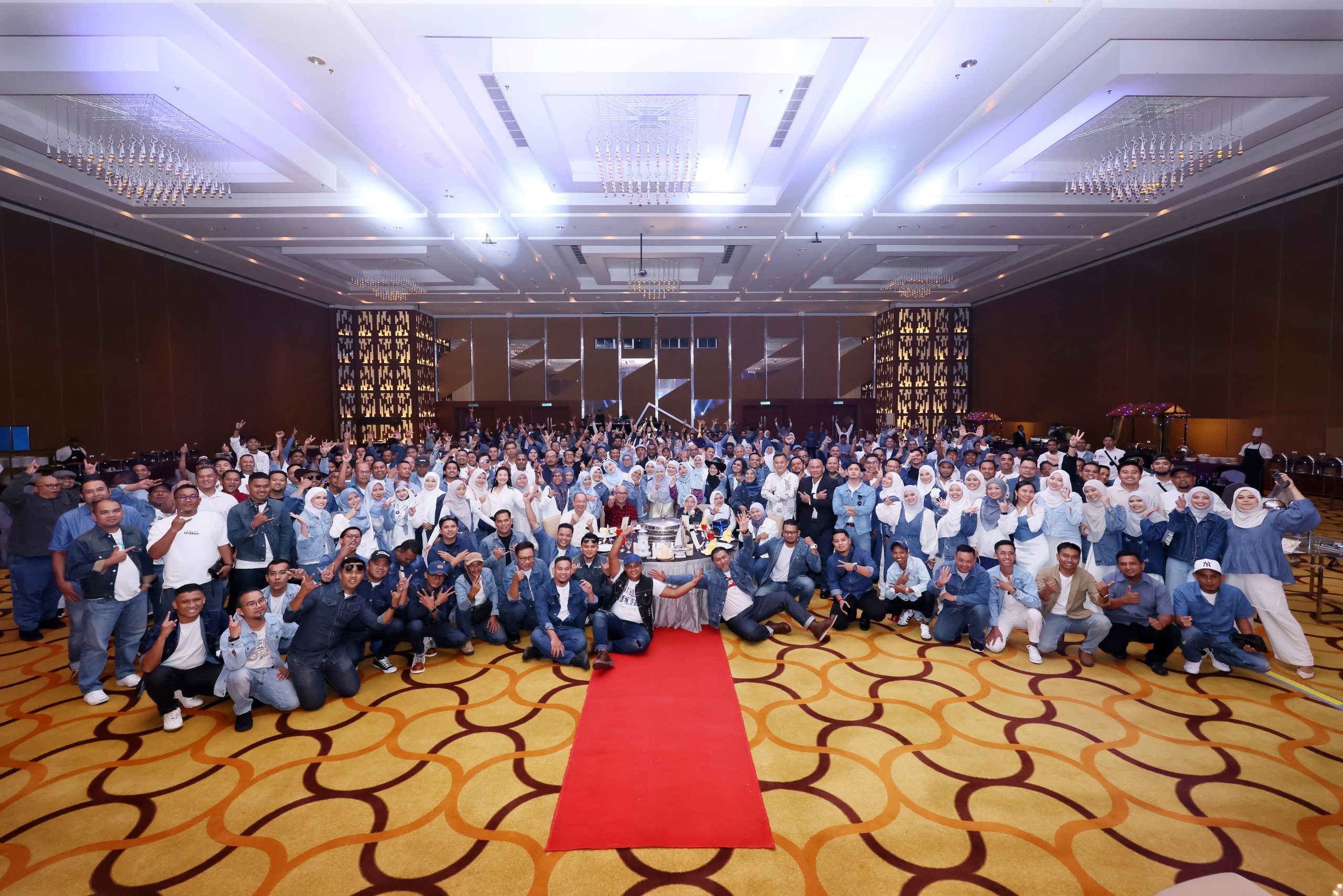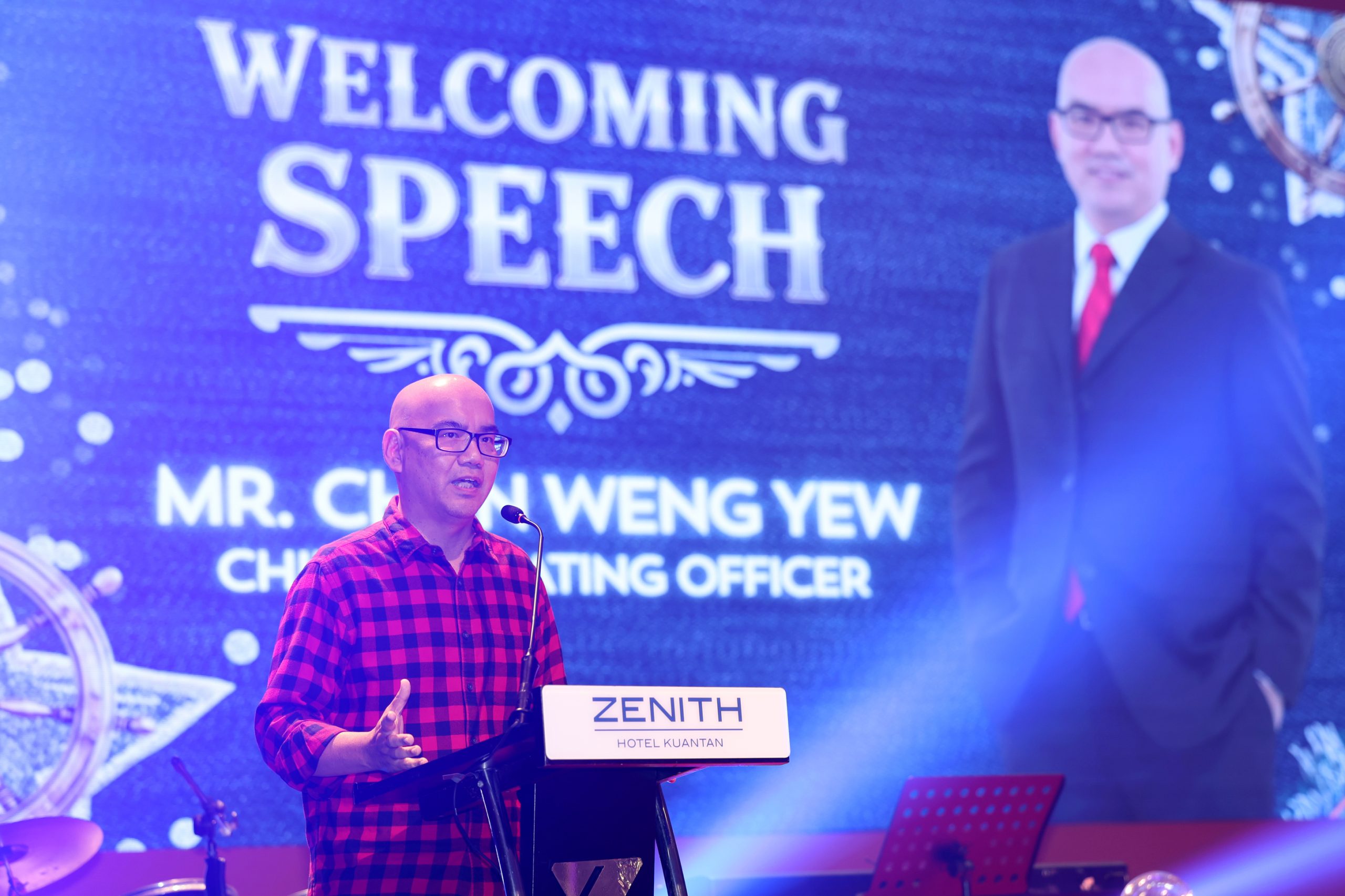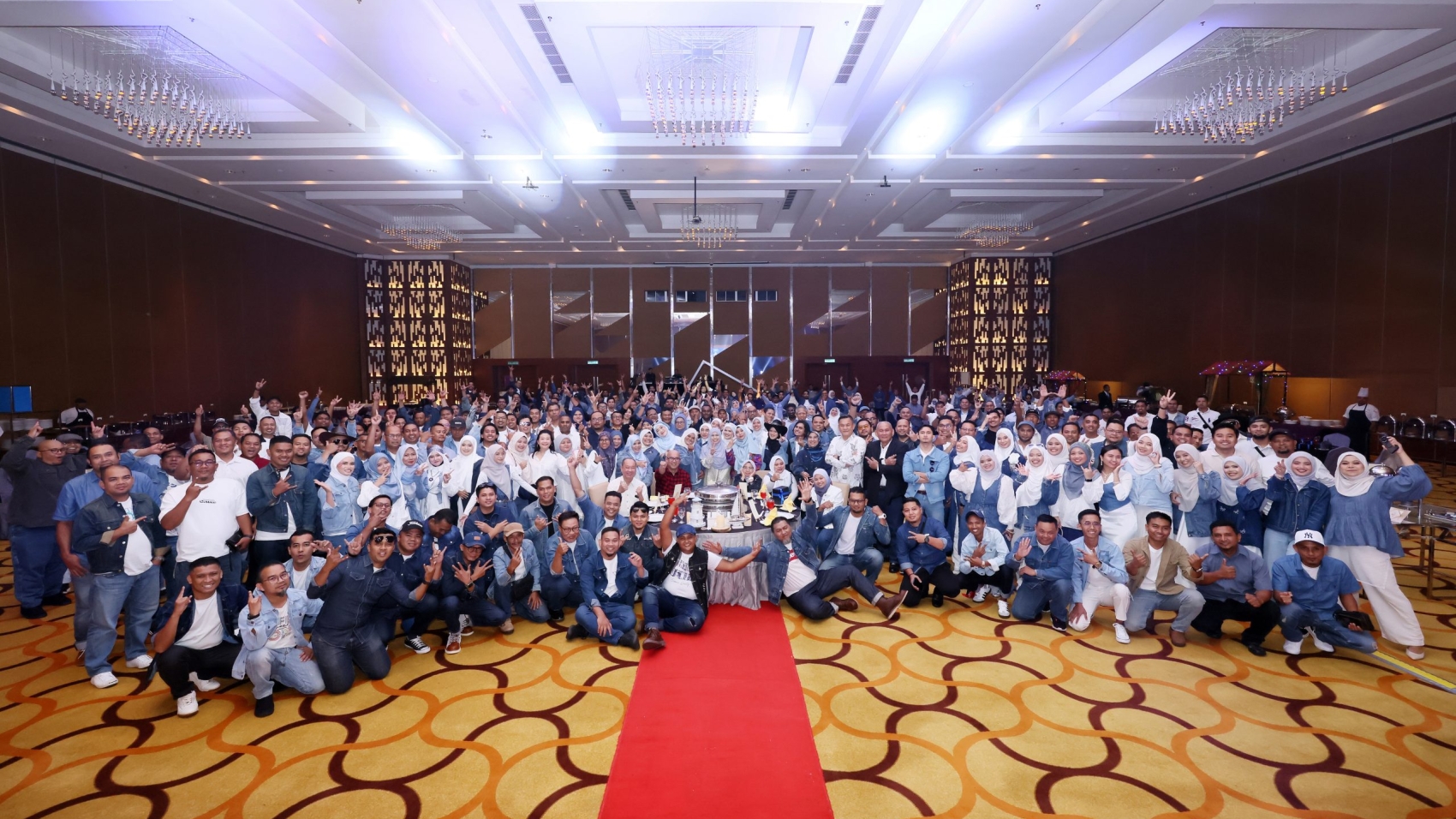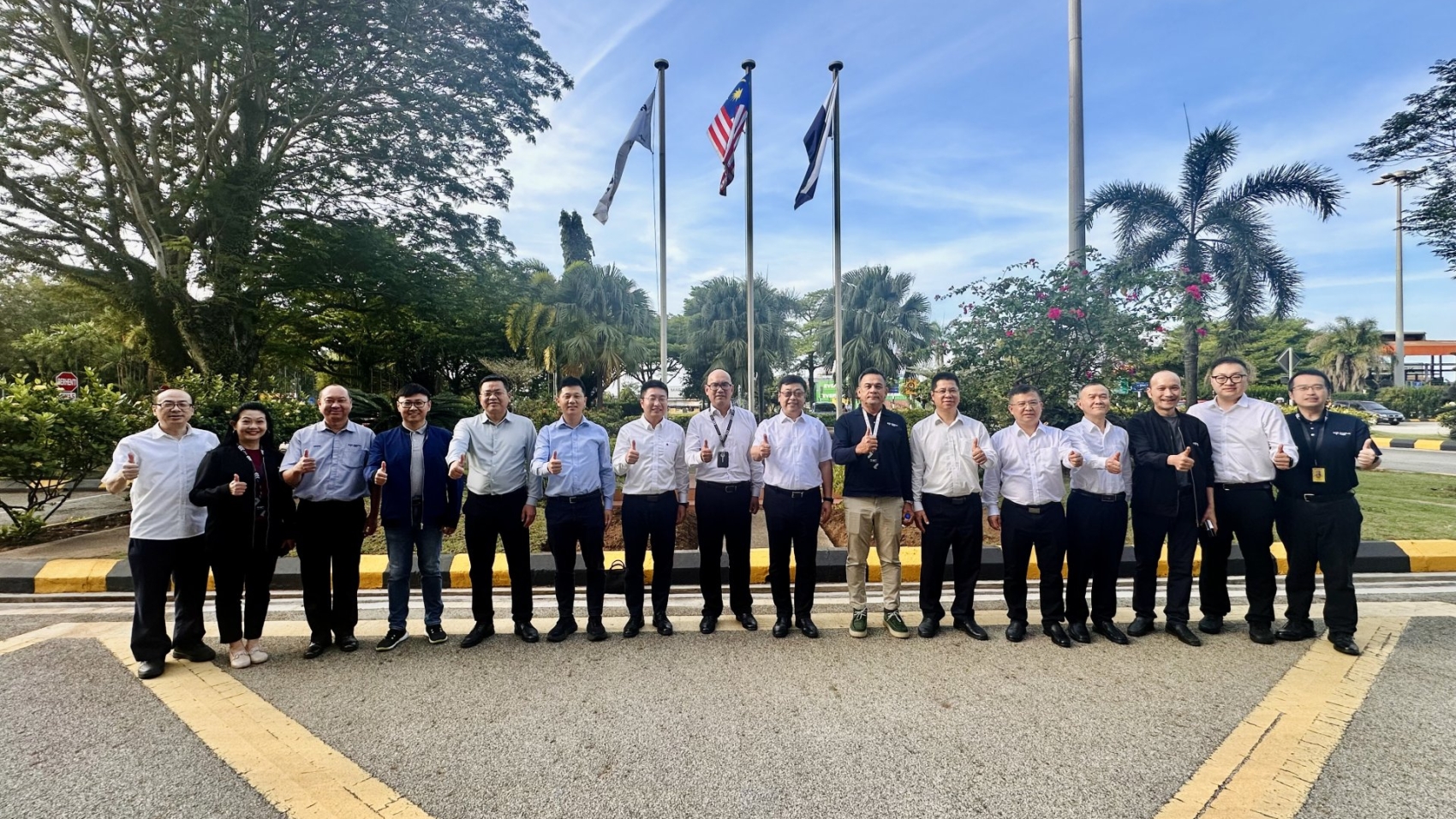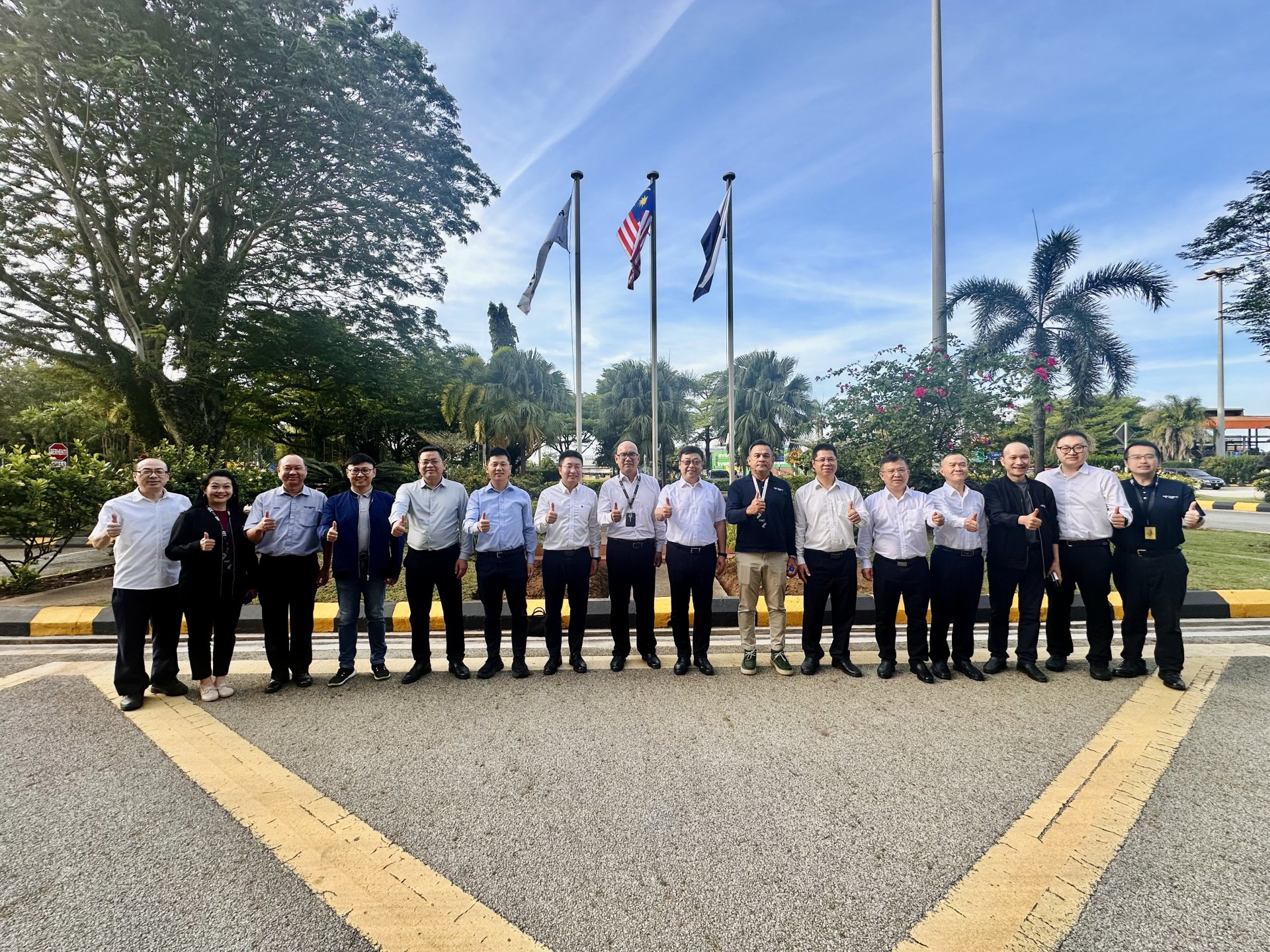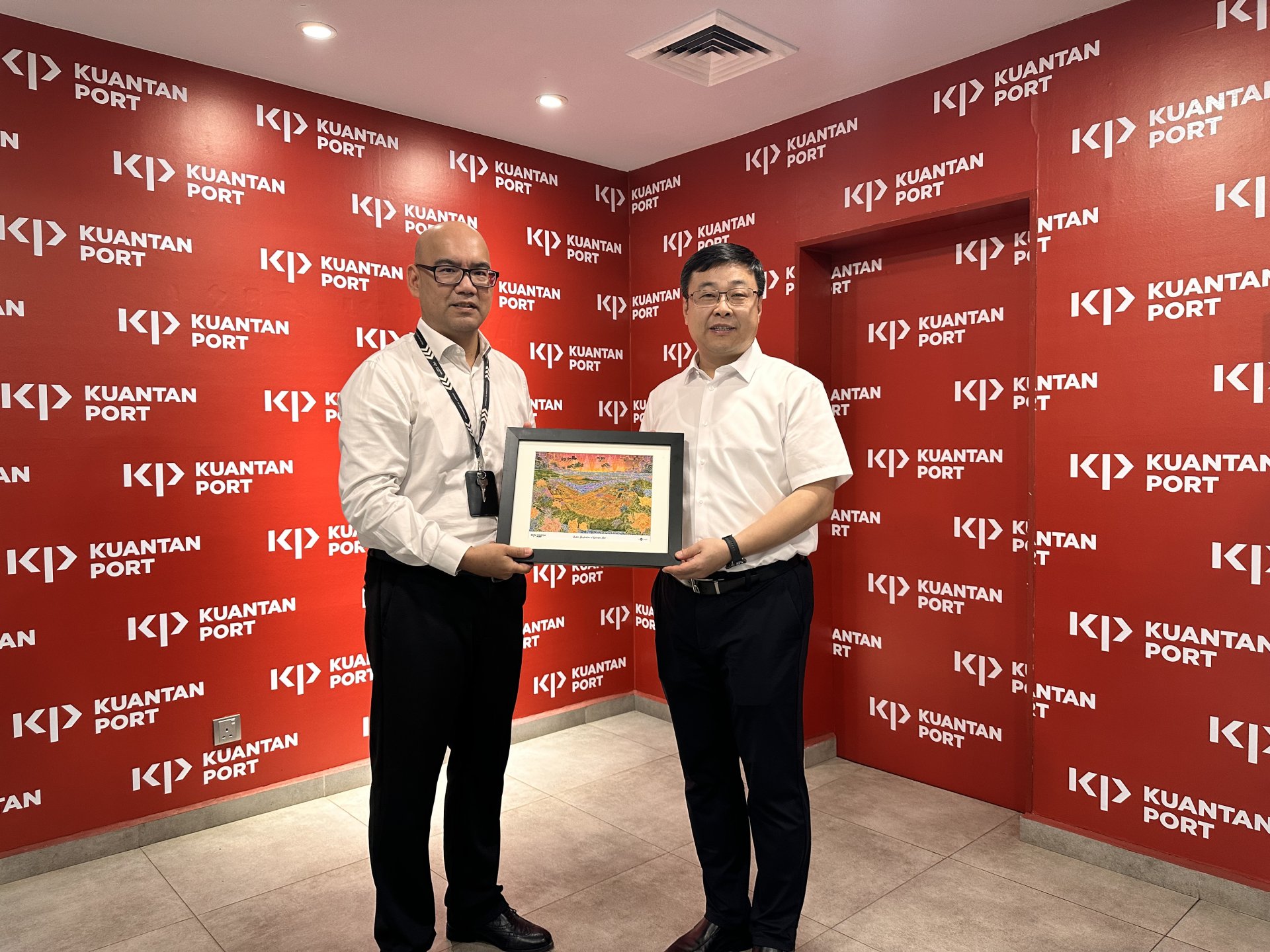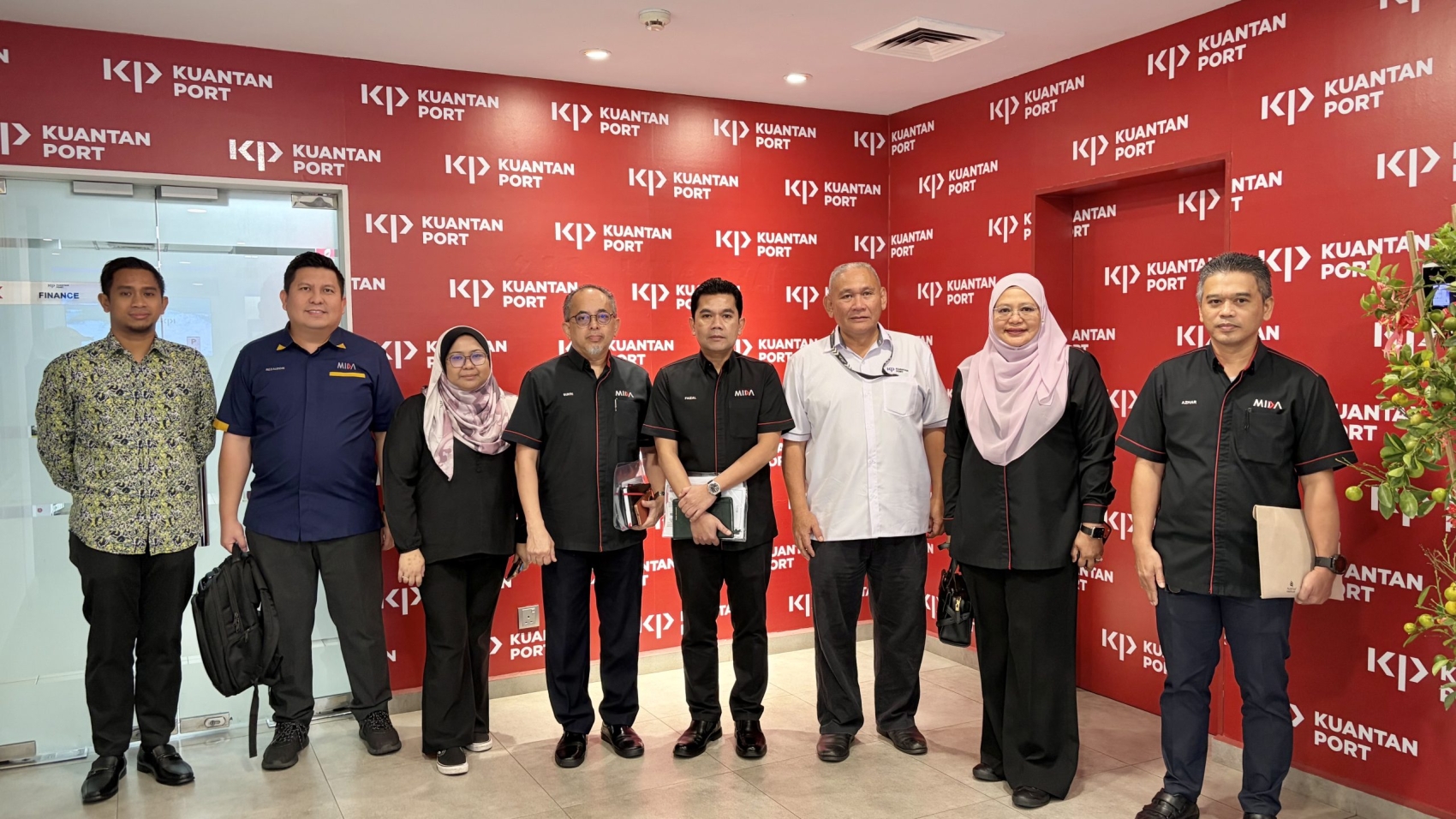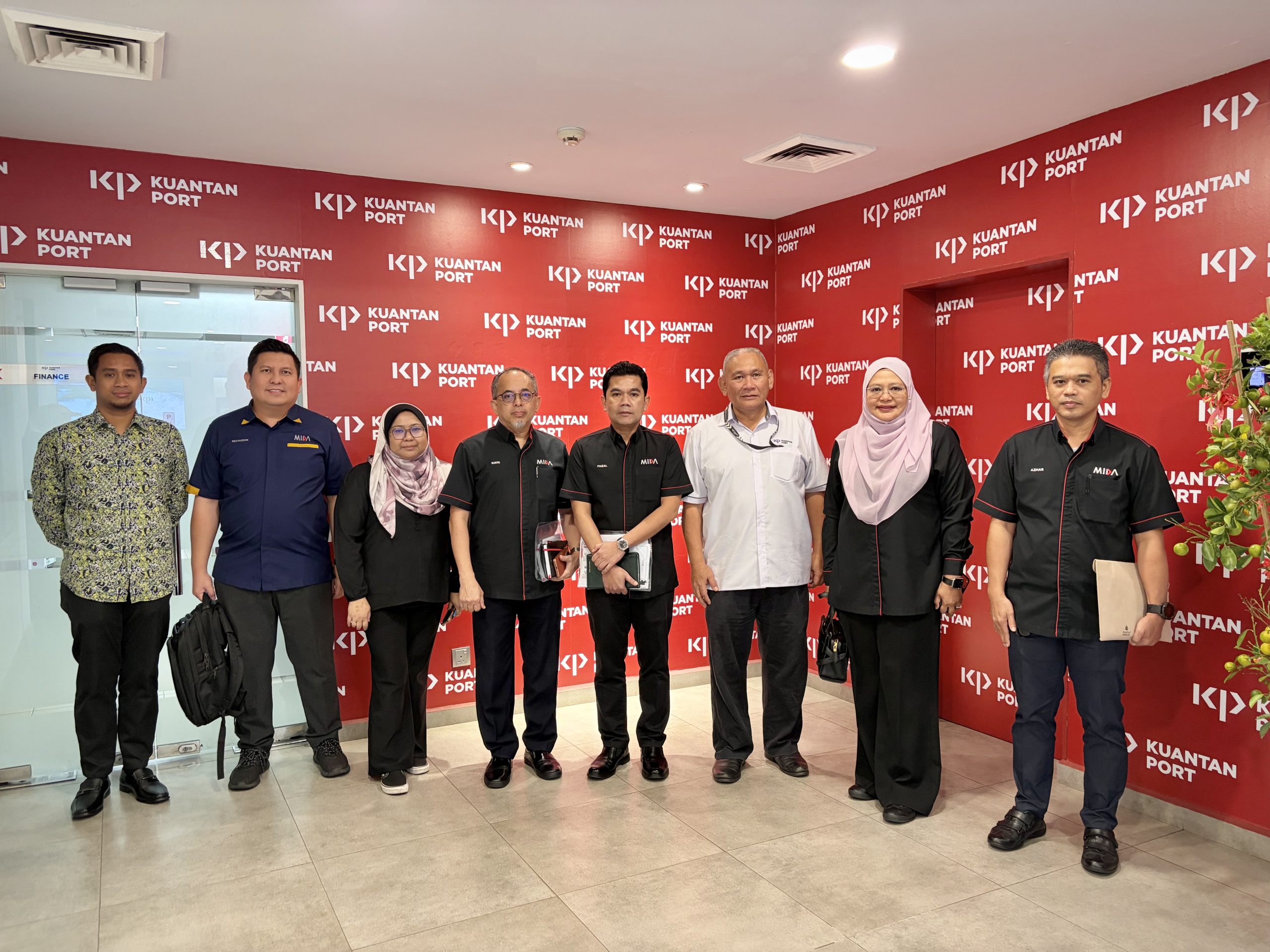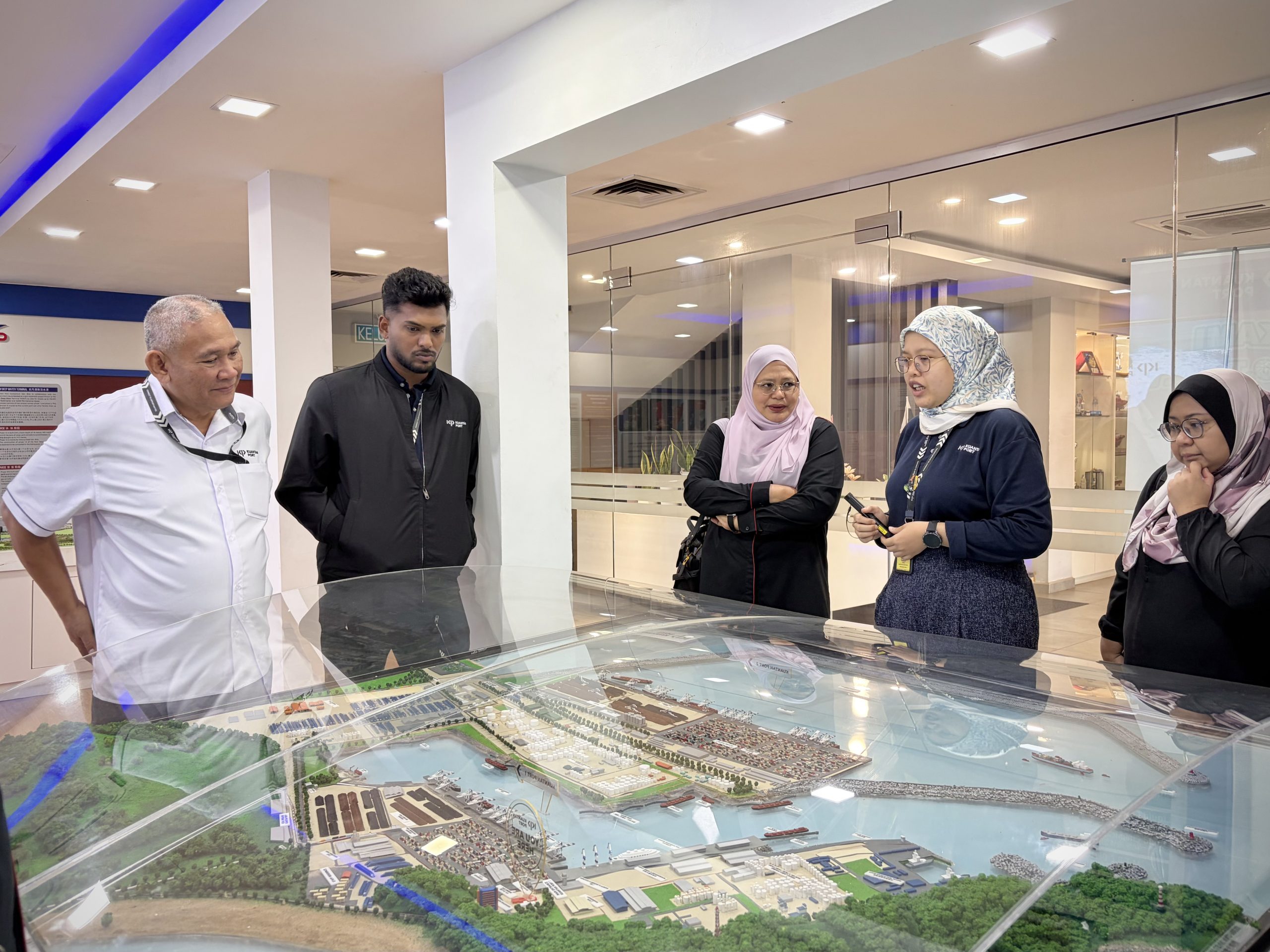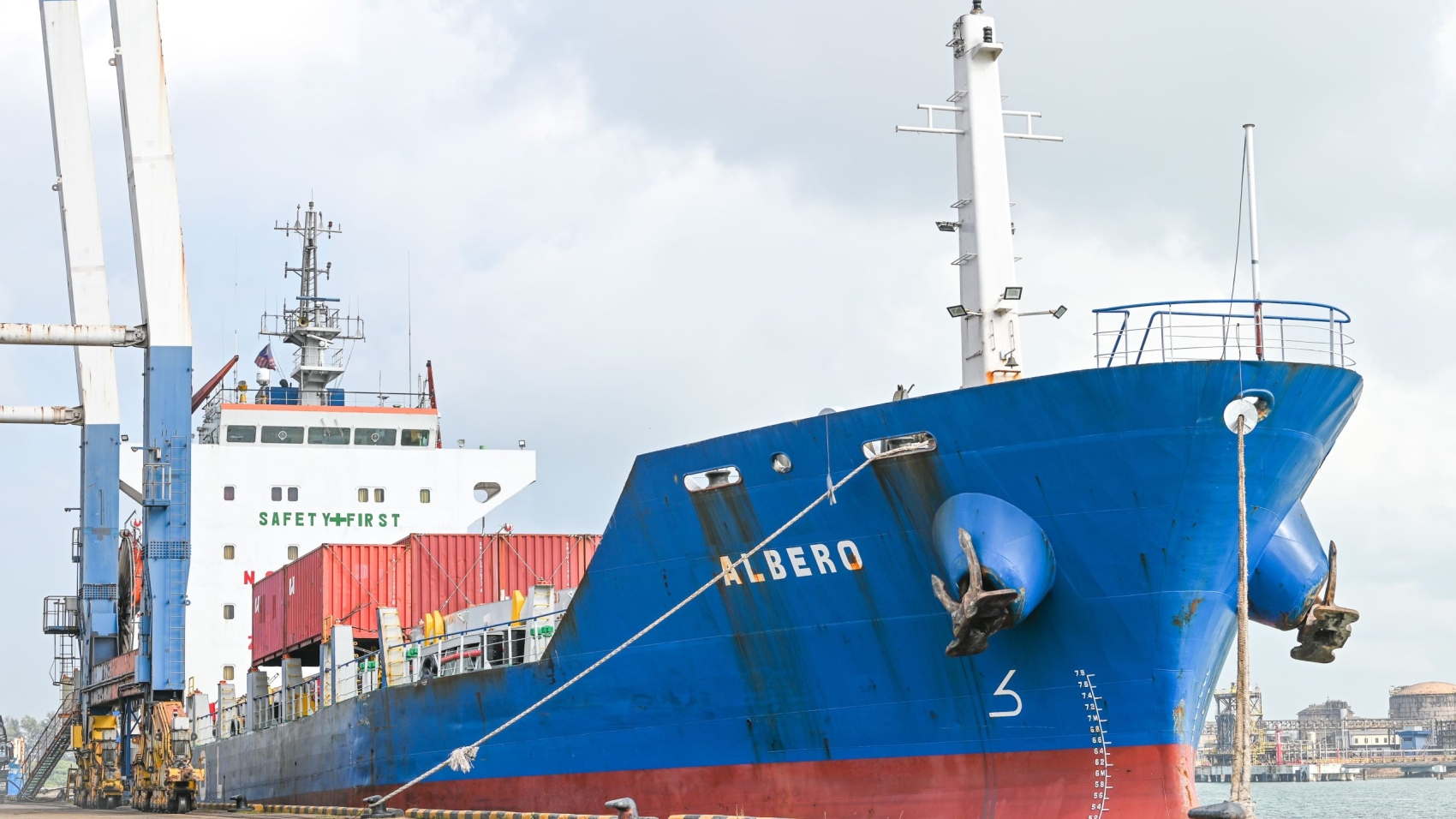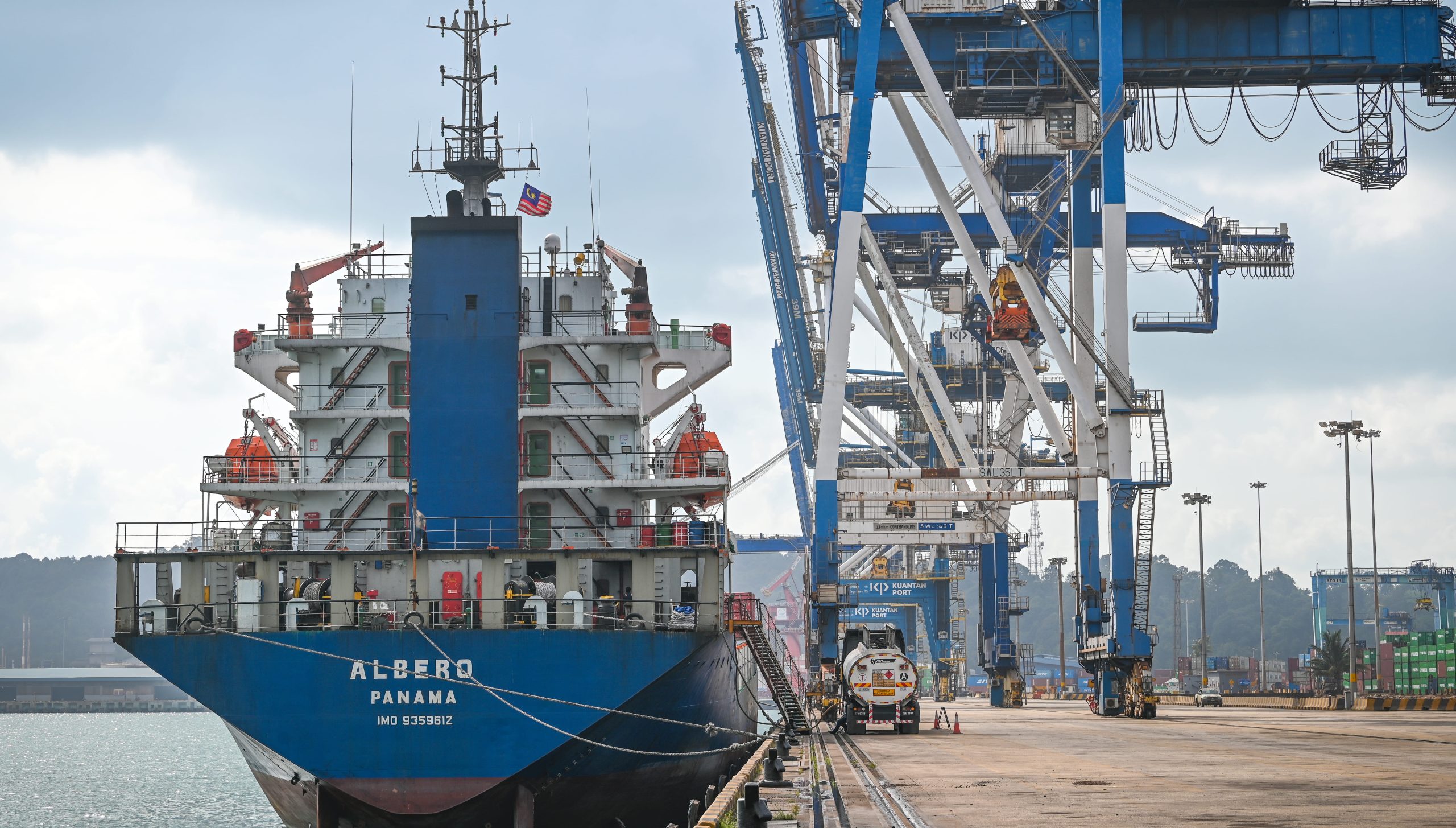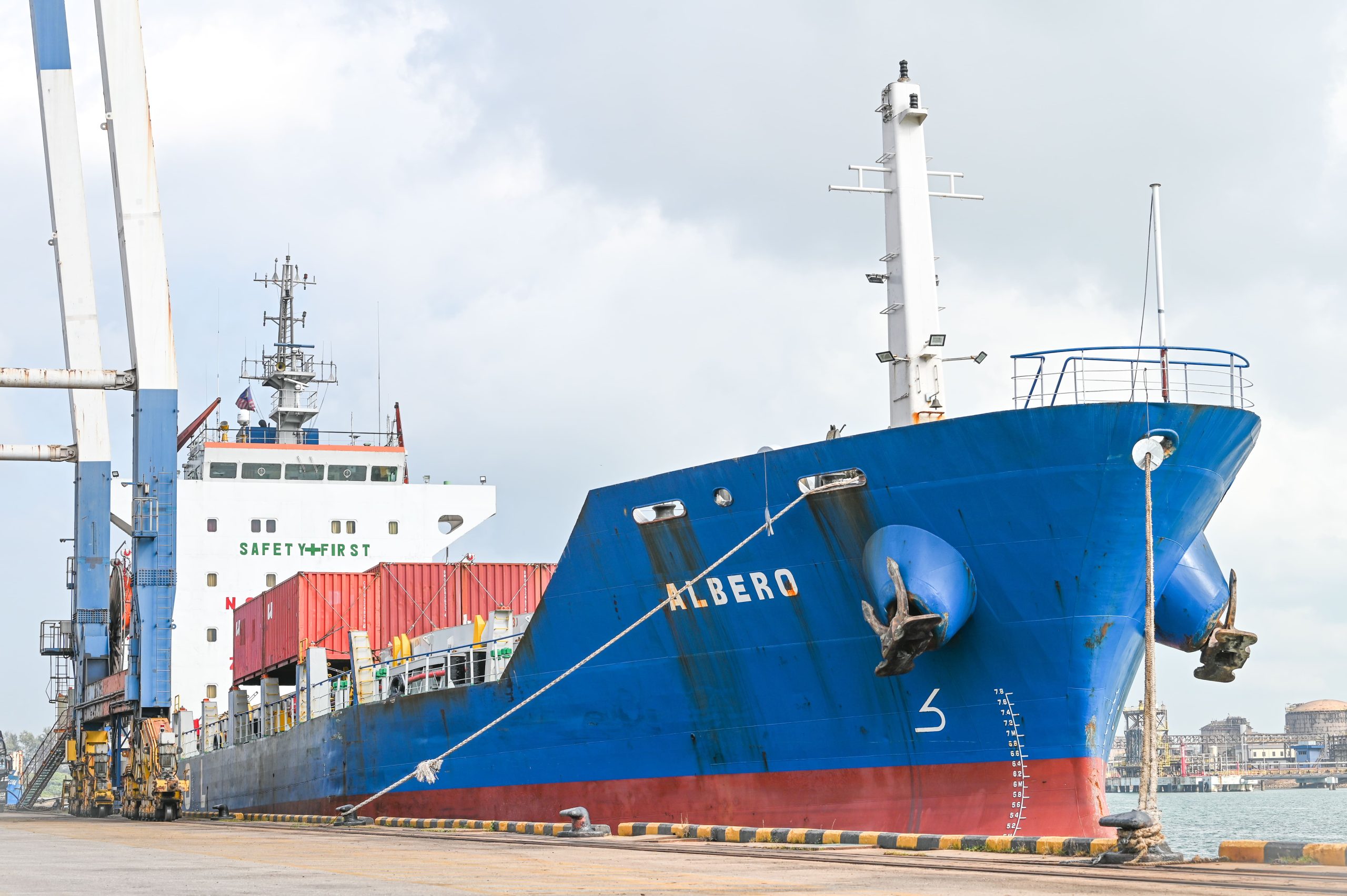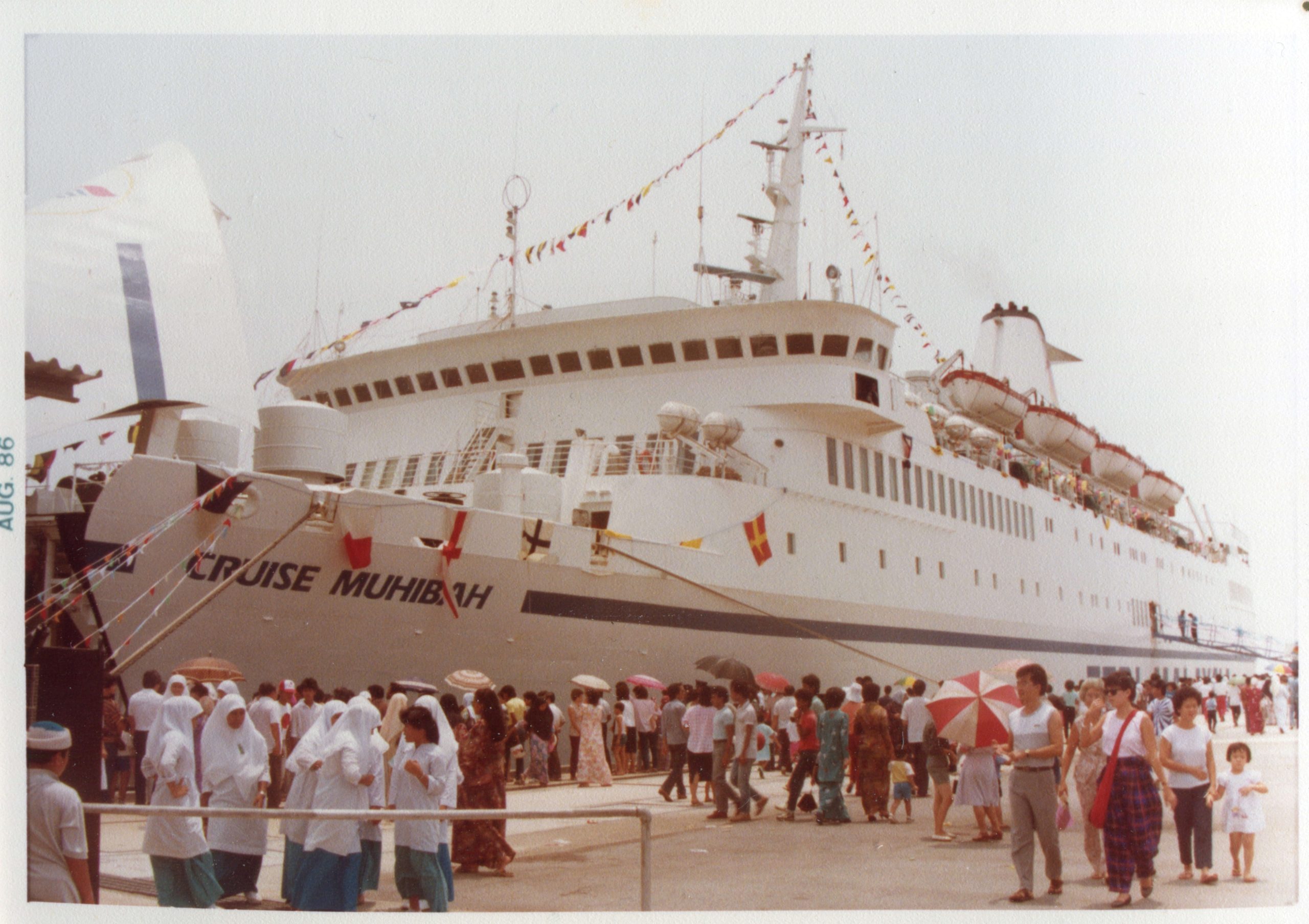Kuantan Port once again brought its people together in a memorable Annual Dinner held at The Zenith Hotel Kuantan. Embracing the theme ‘A Night of Denim, A Touch of Glam’, nearly 300 Warga Kuantan Port gathered in style, blending elegance with personality through stunning denim ensembles while reconnecting and strengthening the spirit of camaraderie that defines the Kuantan Port as a whole.
The evening began with an inspiring welcoming address by Kuantan Port’s Chief Operating Officer, Mr. Chan Weng Yew, who reminded everyone that true progress is built on shared vision, resilience, and unwavering dedication. His message reflected the journey of Kuantan Port in moving forward together through challenges and triumphs, united by purpose.
One of the most anticipated highlights of the night was the vibrant Staff Talent Show, featuring five bands competing in energetic and creative performances. From powerful vocals to light-hearted comedy sketches, the stage came alive with passion and personality, filling the ballroom with laughter, cheers, and unforgettable moments.
The celebration also honoured the pillars of our organisation through the Retirement Award and Long Service Award ceremonies, a heartfelt tribute to employees whose decades of dedication have shaped the growth and legacy of Kuantan Port.
Our sincere appreciation goes to everyone who made this evening truly special. As we continue navigating new horizons and challenges ahead, one thing remains certain. Through every tide and turning point, Warga Kuantan Port will always remain Anchored in Unity.
